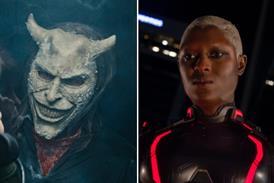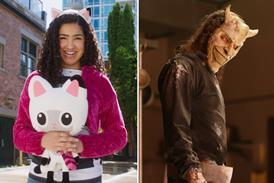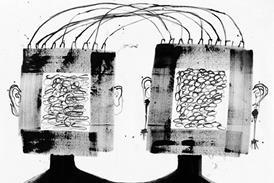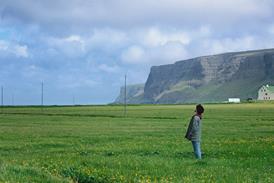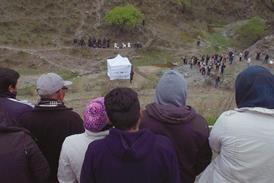Paolo Virzi’s sprawling, inter-connected drama places a parched Rome in the middle of a three-year drought
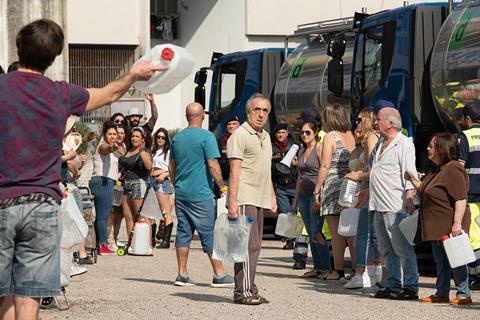
Dir: Paolo Virzi. Italy. 2022. 124 mins.
After a summer when the world has sizzled, Paolo Virzi’s apocalyptic eco-drama-cum-social-satire Dry (Siccita) could hardly be more timely, or sound a more urgent warning note. It’s an honourable, clever, inventive and handsomely staged film, with a sprawling high-calibre cast. The only problem is that Virzi and his co-writers, including eminent writer-director Francesca Archibugi, attempt to cover so many bases that the viewer’s mouth is soon as parched as the situation the film depicts, simply from gasping at all the narrative plate-spinning. The accumulation of interlinked stories will probably be more dechipherable to Italian audiences, given the plethora of well-known domestic faces and, together with the profile of Virzi (Human Capital, The Leisure Seeker), the film promises to flourish when released in Italy in late September, even if prospects are arid elsewhere.
An intelligent, ambitious modern melodrama with a bracingly cynical streak
The premise – anything but far-fetched, alas – is a three-year drought that affects Rome, leaving the Tiber completely dried up (cue imposing CGI aerial views), with public water supplies due to be cut off any day. As the city simmers, along with its inhabitants’ tempers, water becomes the precious commodity that it has always been in less privileged parts of the world – as explained by young African asylum seeker Sembene (Malich Cissé), who embodies one of the drama’s rare sites of sanity.
While cockroaches run riot, various Romans are afflicted by an unfamiliar form of sleeping sickness – among them, chauffeur for hire Loris (Valerio Mastandrea), who hallucinates at the wheel about his parents and the president he once worked for. Meanwhile, out of work actor turned video blogger Alfredo (Tomasso Ragno) obsesses narcissistically about his online profile, while his wife Mila (Elena Lietti) works in a supermarket and surreptitiously plans a liaison with her lover; and Alfredo’s ex-wife Sara, a hospital doctor (Claudia Pandolfi), wrangles the new onset of disease.
One of the threads introduced in a complicated, somewhat confounding opening sequence involves a dopey and altogether untrustworthy musclehead, Valerio (Gabriel Montesi). landing a security job at a luxury spa owned by the Zarate family – a Trump-like clan who have effectively helped themselves to the city’s water while the populace goes thirsty. Then there’s a wise, well-intentioned professor of hydrology (Diego Ribon), whose exposure to the excited media corrupts him over the course of a day. And a seemingly unconnected thread involves a gauche long-term prisoner (much-loved Italian veteran Silvio Orlando, very affecting) who accidentally finds himself on the loose and in search of his past.
There’s a very strong we-are-all-one theme to Dry, of the sort familiar from films like 21 Grams and Paul Haggis’s Crash, although Virzi generally plays his coincidences with a lighter touch - only really hammering the message home when reminding us overtly that climate disaster is a human creation, or when depicting an omnipresent, infinitely hysterical media. The ruinous obsession with glittering appearances, even in the face of catastrophe, is embodied by Monica Bellucci, apparently playing a version of her own persona – although the character is credited as Valentina – as a glamorous actress who quickly makes the professor forget his noble values. For cinephiles, there’s also a brief and eccentric homage to director Bong Joon-ho.
Dry is the kind of film that could easily have been sentimental, and the Silvio Orlando thread makes it seem as if it’s going that way. But, as the various stories connect – intelligently, albeit with some forced contrivance – the film falls into clear alignment, though in a way that’s not as obviously cathartic as we might expect. One story’s ending in particular, involving a grotesque and absurd act of violence, doesn’t seem remotely earned or logical.
Overall, though, this is an intelligent, ambitious modern melodrama with a bracingly cynical streak, its narrative tangles recalling Virzi’s 2013 Human Capital. Among the cast, Orlando, Mastrandrea and Lietti stand out, but partly because of their characters’ prominence, as the ensemble is so strong across the board. Photography by the great Luca Bigazzi – best known for his work with Paolo Sorrentino – gives the action a sweep that’s variously epic and frenzied, especially in depicting the city of Rome as more desert-baked than the glowing gold that we’re used to.
Production companies: Wildside, Vision Distribution
International sales: Vision Distribution, catia.rossi@visiondistribution.it
Producers: Mario Gianani, Lorenzo Gangarossa
Screenplay: Francesca Archibugi, Paolo Giordano, Francesco Piccolo, Paolo Virzì
Cinematography: Luca Bigazzi
Production design: Dimitri Capuani
Editing: Jacopo Quadri
Main cast: Silvio Orlando, Valerio Mastandrea, Elena Lietti, Tommaso Ragno


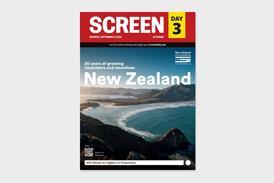

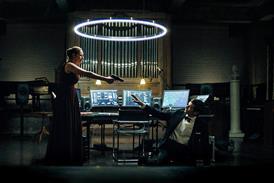
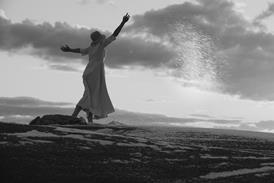

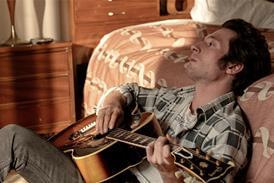

![[Clockwise from top left]: 'The Voice Of Hind Rajab', 'A House Of Dynamite', 'Jay Kelly', 'After The Hunt', 'The Smashing Machine'](https://d1nslcd7m2225b.cloudfront.net/Pictures/274x183/1/7/0/1459170_veniceawards_837515.jpg)



